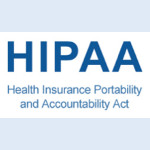Jury Awards Pharma Whistleblower Over $760k in Retaliation Case
“A federal district court in Massachusetts recently ordered Minneapolis based Coloplast to pay over $760,000 to Plaintiff, Amy Lestage, for retaliating against her after she and others filed a whistleblower complaint against the company,” reports Jolena Jeffrey in Katz, Marshall and Banks’ Whistleblower Law Blog.
“In December 2011, pharmaceutical whistleblower, Lestage, along with two former Coloplast employees filed a False Claims Act (FCA) qui tam action against the company, Byram Healthcare, and other large distributors of medical devices and services related to medical conditions and surgeries such as incontinence and ostomy. The qui tam action alleged that Coloplast and some of its distributors engaged in an illegal kickback scheme to inflate their Medicare and Medicaid reimbursements and thereby defraud the federal government. The qui tam action was unsealed on November 20, 2014, and the names of the relators, including Lestage, became public knowledge.”





